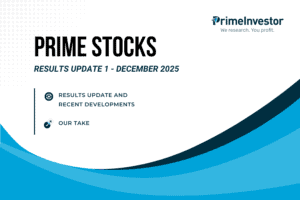It’s been close to 8 months since Franklin India took the extraordinary step of winding up six of its debt funds. After much wrangling in courts, the Supreme Court’s order on December 3rd has provided a clearer way forward in the Franklin India case. In line with the judgement delivered by the Karnataka High Court, the Supreme Court has directed the Franklin AMC to seek unitholders’ approval to actually wind up the schemes.
Following this, Franklin India AMC sent a communication to investors in the six schemes. This communication was to inform the investors that the AMC will seek their consent to wind up the schemes. The actual notice for voting, detailing the process and dates, will follow. The voting window and procedure are not yet out. Until this vote is done, the schemes will continue to remain closed off to any redemption; i.e., the prevailing situation with respect to these schemes will continue.
The future of the schemes depends on the vote. So what is the vote about, and how should you vote?

What the vote is for
If you recall, the first vote that Franklin India sought from unitholders was to approve liquidizing the securities held in each fund. It was not for the winding up decision itself, because of the way the AMC interpreted the SEBI Mutual Fund regulations.
In other words, the AMC had decided to wind up without investor consent and sought consent only to sell assets.
But, as the Karnataka High Court had observed, if the Trustees had decided to wind up a scheme under Regulation 39 of the SEBI MF Regulations, it is bound by obligation under a different Regulation 18 to seek the consent of unitholders for the same. A simple unitholder majority is needed for this.
The vote now, therefore, is for you to approve the original winding up decision that was taken in April 2020. You can vote either Yes or No.
- What a Yes vote implies: If you vote yes, you will be approving the winding up. That means, you won’t be able to place redemption orders. You will leave it to the AMC to go ahead with liquidating the debt instruments so that the money will be returned eventually to you. Your investment will slowly be paid back to you as and when each scheme monetizes the instruments.
- What a No vote implies: If you vote no, then the AMC will have to open up the schemes to redemptions (and fresh investments, but nobody’s going to put money back in). So you will be able to place a redemption request. However, it then becomes a normal open-ended scheme and you will therefore get the prevailing NAV (and not the NAV as on the winding up date). If the fund sells instruments at discounts in order to meet the redemption, you will suffer losses. This may well happen simply because almost all investors will rush to take back their money and a scheme with illiquid instruments (which is the case with a high proportion of Franklin’s closed schemes) cannot possibly sell all its illiquid instruments (if it sells at all) at a good price.
Once the vote is done, and if there’s a simple majority of the Yes vote then winding up is approved. In that case, the AMC will send a second vote to allow them to liquidate the instruments in each scheme, to execute and complete the winding up process. This second vote will be the one that Franklin AMC originally sought from you in June.
What should your vote be?
Our recommendation is that you vote Yes. Allow the schemes to be wound up. There appears to be no good reason to vote ‘No’ on this question and disagree to winding up the schemes.
People advocating that seem to be under the impression that somehow if the schemes get opened at some point, the AMC will allow redemption of units at the NAV of the date of shut down (April 24th), or that they will be legally required to. We believe that this extremely unlikely.
We continue to believe (as we have noted previously), that this situation was poorly handled by the AMC and poorly regulated by SEBI. But together, they have presented us with a ‘fait accompli’ – a deed already done. There’s no real choice if you are to get your money back without suffering further losses. Remember that it was an inability to meet redemptions that pushed Franklin India AMC into winding up the schemes in the first place.
The schemes, since April, have received interest accruals and prepayments on some instruments. Cash levels in some schemes are already at reasonable levels, and credit markets are more vibrant than they were when this saga first unfolded. This gives hope that the AMC will find it easier to liquidate at better prices. The table below shows the cash level in each scheme as of November 27, 2020.
In the current situation, the only thing that you can do is try and get as much of your money back as soon as possible. And voting ‘yes’ is the only way to prevent this bad situation from getting worse.
Why all this?
If you’re wondering whether going to the courts helped at all, it did in a couple of ways:
- One, it sent a strong signal to AMCs that investor consent for investor’s money is a must. There can be no 2 ways to interpret law just because it was poorly framed by the regulator.
- Second, the Courts have, in no uncertain terms, slammed SEBI for being a ‘silent spectator’ and for not being proactive. SEBI cannot also take the cover of not having the powers.
In simple words, it served as a wake up call for the regulator, which went all out with ‘product improvisation’ and failed in its ‘investor protection’ role. For a giant AMC such as Franklin Templeton, it was a lesson in humility and not taking investor and investor money for granted.




23 thoughts on “Franklin India case – what you should do now”
I hear that CFMA is advising unit holders to vote No. Also, I heard the SC will hear the other parties this week. Is there a chance for the voting to be stayed again?
In case there’s a majority No vote, when should unit holders go in for redemption? Immediately, or should we wait for the market to pick up?
CFMA in our view is misguiding investors. If there is a majority No then there is a big risk of run on the money and you taking a significant haircut. There is no question of waiting as everyone of your peers would be panicking and withdrawing. Please read the ruling carefully. There is very little the law can do from here. thanks, Vidya
I agree with many investors that they have lost trust in Franklin (which is very natural), however post winding up of the scheme, they have been very pro active in their communication and have done a commendable job in monetising the assets which is clearly reflected in their current cash holdings in 2 of their big schemes.
Franklin India Ultra Short Bond Fund – 46.24% of AUM as on 1st December 2020
Franklin India Low Duration Fund – 48% of AUM as on 1st December 2020
I wish investors click yes for winding up of the scheme as mentioned in the article as it will give them chance of getting maximum fair value for their investments.
Had deleted that email but after reading this article went through the mail again. Good information in this article.
Just throw this AMC and its schemes out of your prime funds leave alone wasting your precious time on evaluation. Existing investors should pull out of their schemes too. Very clear now that the endgame will be bitter and sordid for investors however it plays out. This AMC no longer deserves our trust
Respect your feelings on this and agree with investor sentiments. We just do our job. thanks, Vidya
Dear Bhavana Madam,
Thank you for the timely update. Can you please suggest the action plan for unit holders in Franklin Dynamic Asset Allocation Fund of Fund?? I believe, one of the liquidated schemes, Franklin India Short Term Income was the investment option of Dynamic fund of fund to maintain debt allocation. Thanks.
Hello sir,
You can consider exiting the fund. It has recovered a good amount from the hit it took post the winding down and 1-year returns are better than they were even in early March. The fund has been holding debt allocation in cash equivalents. Its mandate allows it to invest only in STIP and Low Duration funds and it appears that the fund is yet to receive SEBI approval to change the mandate to invest in other debt funds. We don’t know when this will happen, or when the fund will receive payments from the shut funds, or how that will help return. So it may wind up being an opportunity cost in waiting to get the amounts back. Since the equity appears to have compensated for some of the loss, the hit for you may be less severe. Hope this helps.
Thanks,
Bhavana
What will happen to the Segregated Portfolio of each of these funds ? FT has been selling the papers in the segregated portfolios and paying the unit holders the proceeds of the sale.
Thanks
Hello sir,
The segregated papers are distinct from the main fund and are not impacted by what goes on there. In the segregated papers, money will be paid back if and when they recover dues from it – this is why some amount on the Vodafone segregated portfolios came in. Detailed explanation is here: https://www.primeinvestor.in/youre-getting-some-money-on-your-franklin-india-units/
Thanks,
Bhavana
Thanks for the timely advice. Couple of points: 1. Shouldn’t SC/HC have specified what NAV would apply if investors voted “No”? Since you write that NAV of 24 Apr would apply is extremely unlikely, I guess this is up for interpretation. 2. If SEBI and AMC have violated rules as indeed the Bangalore court judgment says, the courts should hold some person/s in these agencies accountable and announce deterrent punishment. That way AMCs will have clarity and investors reassurance on their debt investments
Hello sir,
1. Unless the court decided that the April NAV should apply, it would not need to give NAV at which redemptions should be met. That’s a different judgement altogether. Our interpretation is that if the vote fails, it means that the funds cannot be wound up which would mean that redemptions are allowed. The funds continue to be declaring NAVs, so only the prevailing one should apply.
2. Unfortunately, the rules are framed in a manner that makes for different interpretations. We talked about it here – https://www.primeinvestor.in/franklin-investors-the-court-to-your-rescue/ So it can be argued both ways. The courts made it very clear on how the rules should be interpreted. Funds have wound up before without investor consent (funds were very small), but in those cases money was immediately returned so the interpretation never came into question unlike now.
Thanks,
Bhavana
Very sane advice!
Thanks for the writeup. This entire fiasco has been a nightmare. You’re being too kind by calling this “poorly managed”. There’s clear evidence of negligence, and potentially, fraud. Why has no one at either Franklin or SEBI been fired (or better still, convicted) over something of this magnitude? Unfortunately, a big chunk of my portfolio is stuck in FUSBF. What a sh*t show!
Thank you for the advice. I agree with your recommendation. What happens if I vote ‘yes’, but because the majority voted ‘No’ and the ‘winding up of schemes’ get cancelled? Will there be lesser priority for my redemption request due to my affirmative vote earlier? In other words, will my vote impact my future redemption chances?
Hello sir,
No, your vote will not affect your redemption. If the scheme opens up for redemptions because the vote failed, and you place a redemption request, the fund will have to honour it at the applicable NAV. It cannot deny you redemption but meet other requests. The vote does not work that way.
Thanks,
Bhavana
Comments are closed.